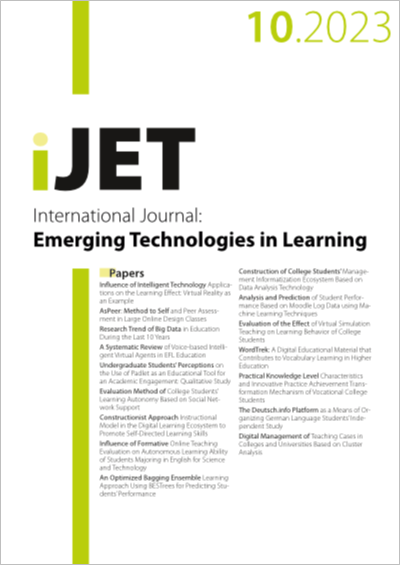Evaluation of the Effect of Virtual Simulation Teaching on Learning Behavior of College Students
DOI:
https://doi.org/10.3991/ijet.v18i10.38707Keywords:
Virtual Simulation Teaching, Learning Behavior of College Students, Course Integration Model, Evaluation IndicatorsAbstract
As a new learning model that breaks the barriers of time and space, virtual simulation covers a variety of learning behaviors. To evaluate the effect of virtual simulation teaching on college students’ learning behavior, with the help of a course integration model which reduces the omissions in the process of data collection, the data collection process of college students on the online platform was constructed. The collected data before storage were preprocessed which reduces the repetition rate of the original data of learning behavior, and the correlation between the collected data and the actual learning behavior was analyzed. Results show that learners’ specific process of online learning can be summarized into four stages: login trajectory, core learning, social interaction, and learning evaluation. Then, the actual final examination scores of the college students who participated in the test are all above 90 points, and their academic achievements are significantly improved. The use of the virtual simulation teaching method also enhances the overall satisfaction of college students with experimental courses, and the accuracy of the analysis results of course results is 99%, with better results. Conclusions are helpful to build college students' active learning consciousness of virtual simulation teaching courses.
Downloads
Published
How to Cite
Issue
Section
License
Copyright (c) 2023 Meng Li, Alain Fronteau, Jing Huang

This work is licensed under a Creative Commons Attribution 4.0 International License.



